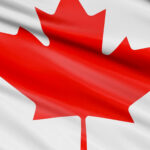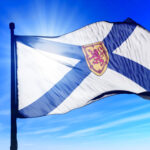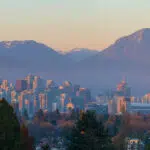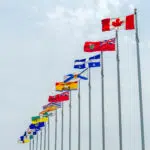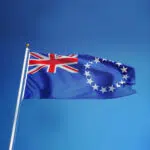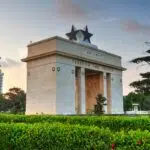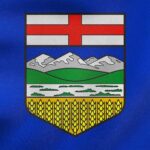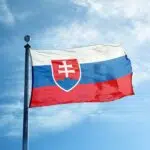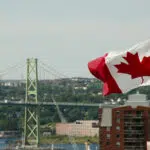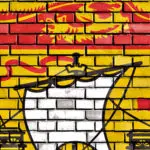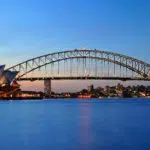Civic Holiday, which falls on August 4 this year, strives to help foster the spirit of community among residents. What do you call Canada’s first-Monday-in-August Civic Holiday? Well, that all depends on where you are. It’s technically not what Canadians call a ‘statutory’ holiday, and different parts of the country celebrate in different ways. For example, in Ottawa, it’s Colonel By Day — in honor of Lieutenant Colonel John By — who supervised the construction of Ottawa’s Rideau Canal. New Brunswick calls it New Brunswick Day, while it’s Simcoe Day in Toronto. John Graves Simcoe was the first Lieutenant-Governor of Upper Canada. Some provinces and cities don’t celebrate at all.
You might be wondering why is it termed Civic Holiday? The word civic is a reference to municipalities, because this day is not mandated as a public holiday across Canada by the federal government.
When is Civic Holiday 2025?
Canada celebrates its Civic Holiday on the first Monday of August.
History of Civic Holiday
The first Monday of August is a holiday across Canada. Most people simply enjoy it as an extra day off from work, which is a good enough reason to celebrate, but did you know that the true meaning behind this annual observance is to honor John Graves Simcoe? He was the first lieutenant governor of Upper Canada, which is known as Ontario, today. He also established the landmark of Fort York, the founding place of modern Toronto.
Most provinces and territories observe Civic Holiday on the first Monday in August. In the Northwest Territories, Manitoba, Nova Scotia, Ontario, and Nunavut, it is known as Civic Holiday, in Alberta, it is celebrated as Heritage Day, in some parts of Nova Scotia it is known as Natal Day, in Saskatchewan as Saskatchewan Day, in New Brunswick as New Brunswick Day, and in British Columbia as British Columbia Day.
The earliest references to Civic Holiday being observed in Canada date back to the mid-1850s to early 1860s when some cities in Upper Canada — London in 1856, Toronto in 1861, Hamilton in 1862 — started to have a public holiday in August. These holidays varied every year and were declared by the mayor. Local businesses and stores were closed for the day and people spent the day enjoying picnics. The idea spread quickly, and soon Winnipeg also had its first holiday in 1874. The first Monday of August was ultimately solidified as Civic Holiday.
British Columbia, New Brunswick, and Saskatchewan also have their provincial birthdays on this day. The mid-summer holiday is not a statutory holiday in Ontario, Manitoba, Nova Scotia, and Alberta, but is generally observed by businesses, institutions, and the government. Some municipalities in Ontario celebrate important historical figures on Civic Holiday. Cultural diversity is also celebrated today in Alberta.
Here are just some of the other names for Canada’s Civic Holiday:
- British Columbia Day
- Heritage Day (Alberta)
- Natal Day (Nova Scotia)
- Terry Fox Day (Manitoba)
Quebec, Newfoundland, and the Yukon don’t observe the first Monday in August as a civic holiday.
Civic Holiday timeline
Upper Canada begins to celebrate this public holiday in August.
Britain grants Canada its national independence.
The mayor of Toronto organizes a day of recreation for city residents in the middle of the summer.
The first public holiday in Winnipeg takes place.
The first Monday of August is officially formalized as the Civic Holiday by Toronto City Council.
British Columbia is the last Canadian province to officially observe the annual holiday.
Civic Holiday Traditions
The people of Canada celebrate Civic Holiday by spending the day basking in the summer sun outdoors with friends and family, whether in parks or at home in their gardens. They have picnics and barbecues or go on walks.
Various cities also host jovial festivals with music, food, tours, and displays of the local arts and heritage. There are also parades, fireworks displays, and award ceremonies for citizens’ achievements in sports, academics, and cuisine.
Civic Holiday Canada By the Numbers
37,578,285 — Canada’s population as of 2019.
3,463,000 — Canada’s estimated population in 1867.
46,995,360 — the number of maple taps in Canadian trees in 2016.
11 — the number of statutory holidays in most Canadian provinces and territories.
9th — the ranking of Canada among nations in the latest ‘World Happiness Report.’
1st — the ranking of Canada among the 25 countries that accepted U.N. refugees in 2018.
70% — the percentage of Canadians who spend time outdoors or doing wilderness activities.
206,624,103 – the number of potted plants produced in Canada in 2017.
5,032 – the number of bars, restaurants, and other establishments licensed to sell alcohol in Canada in 2018.
Civic Holiday FAQs
Is Civic Holiday a paid holiday in Canada?
Many employers give their employees a day off on Civic Holiday but, under the Employment Standards Act, it is not an official public holiday.
Why is it called Civic Holiday?
‘Civic’ refers to various municipalities because the holiday is not mandated as a national holiday by the federal government.
What is closed on Civic Holiday?
Mail is not delivered today, and many businesses and services will be closed. Some tourist spots remain open.
What Civic Holiday Means?
While many people associate Civic Holiday with being another reason to have an extra day off from office, the actual significance of Civic Day is to honor John Graves Simcoe, the first Lieutenant Governor of Ontario.
is Civic Holiday for everyone?
Not, but many people think it should be a statutory holiday all across Canada.
Is Civic Holiday a federal holiday?
It’s a public holiday in some territories and provinces in Canada. Civic Holiday is not mandated by the Federal Government in Canada although its a day off for a lot of employees across the country.
Civic Holiday Activities
Go for a picnic
Summer is the perfect time to enjoy the outdoors and, thankfully, most parts of Canada have gorgeous outdoor locations. Grab your picnic basket, invite your friends, and head out for some time under the sun.
Join a conservation campaign
One of the ideas behind the Civic Holiday is to make people aware of conservation efforts. Nonprofit campaigns always need volunteers. Do something meaningful this Civic Holiday.
Start the party on Sunday
Monday holidays are rare. Make the most of this occasion by staying up late the night before. Maybe look for a rave happening in your city, or just invite your friends over.
5 AMAZING FACTS ABOUT CANADA
You might weigh less there
Studies have found that the Hudson Bay region, for instance, has lower gravity than the rest of the world.
Do drink the water
The tap water in Canada is actually better in quality than bottled water.
You can get a free ride on holidays
Parts of Canada have a volunteer service that offers free car rides to people who have had too much to drink.
Canada can get as cold as Mars!
A temperature of -63℃ (-81.4℉) was recorded in the small village of Snag on February 3, 1947 — that’s colder than the average temperature on the surface of Mars!
Canada has more lakes than you think
The stereotypical thing associated with Canada is maple syrup, but the country has more surface area covered with lakes compared to any other country in the world combined.
Why We Love Civic Holiday
It raises awareness of your surroundings
The idea behind Civic Holiday is to make people aware of their community and their environment. By doing so, it encourages people to participate in community-led programs that work towards the betterment of society.
Outdoor dining
Civic Holiday falls right in the middle of the summer, which means you can take your picnic baskets and enjoy the gorgeous Canadian outdoors.
Contributions to communities are recognized
Several provinces hold award ceremonies on this day, where residents who have made a positive impact on their community are rewarded for their diligence. We are all for community-driven initiatives.
Civic Holiday dates
| Year | Date | Day |
|---|---|---|
| 2024 | August 5 | Monday |
| 2025 | August 4 | Monday |


